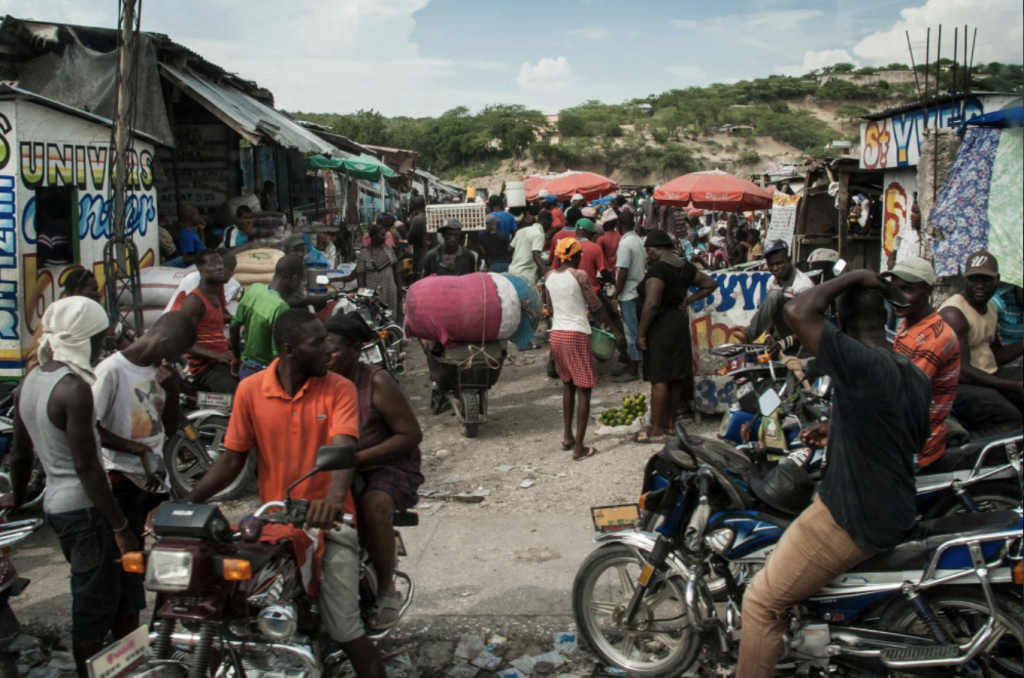
Experienced former Canadian ambassador to the Dominican Republic, John W. Graham, in a recent overview on the failed state situation in Haiti, urges the removal of the criminal gangs and securing of world support for recovery from the damages of acute climate change in Hispaniola island.
Graham acknowledges the United Nations has lost interest after the Minustah intervention for years ended with the Nepalese troops bringing cholera to Haiti. Yet, the experienced diplomat writes that a well-led, well-disciplined body of troops operating under the recognized authority of an international body is needed to deal with the gangs that are in control in Haiti.
“As a start, it could be helpful if eminent and mutually compatible representatives from the Dominican Republic and Haiti, chaired by a senior international person, met together in camera with two or three experienced and senior veterans of Minustah to develop a draft plan. Ideally, the initial planning group should be kept as small as possible, enlarging as plans take shape to include international organizations and the Bretton Woods institutions,” he writes.
He says not to do so is to let Haiti “self-destruct.” In the Dominican Republic, local authorities reject that the world looks the other way as it expects there to be a Dominican solution to the Haitian crisis. President Luis Abinader has protested this situation on all global forums that he has attended.
Canadian former ambassador John Graham understands that as the situation prevails in Haiti, “the Dominican Republic will continue to be grievously affected, with ramifications extending to the entire neighborhood.”
Already, Haiti seems to have delegated much of its public health responsibilities to the Dominican Republic. In addition to hospitals dealing with serious illnesses, thousands of women give birth for free every year in Dominican public hospitals. Hospitals in Santiago, the border provinces and Santo Domingo are now specialized in dealing with the Haitian population that pays the fee of border smugglers, including connections with the military, to cross over. Thousands of undocumented Haitians are already living in the Dominican Republic and demand public services.
The Duarte Institute in the Dominican Republic says that the increasing demands for work permits in construction, domestic work and free birthing services are becoming every day more the Dominican solution to the Haitian crisis. It says the Dominican government is bending to international pressures and accommodating the every day increasing demands of the Haitians.
Dominican Foreign Minister Roberto Alvarez has said that the gang problem in Haiti has spread with wide-reaching effects beyond the Dominican Republic to the rest of the Caribbean region.
Graham says there is “the need for a political agreement, a consensus of internal Haitian actors, to move forward, without which there can be no break in the vicious circle.”
He mentions the credible dialogue and search for consensus that emerged in August 2021 in the Montana Agreement. “This group proposed plausible transition formulas to exit the crisis, and has become more credible with the establishment of links with an alliance of political parties through the ‘’Protocole d’Entente Nationale (PEN)’’, a coalition of some 70 political organizations and social groups. Montana could be a starting point,” he writes.
Graham understands that Haiti’s sharing the island with the most dynamic economy in the hemisphere [the Dominican Republic], can be an advantage that could revert the situation. “With care and imagination, that could be an advantage, not just an anomaly,” he writes.
He calls for appealing to the “sophisticated capacity both within Haiti and in the diaspora,” to make this work. “These talents should be identified to facilitate their participation in implementation. This could engage a pilot plan involving both countries with the support of the international community.
He recommends drafting a project that would demonstrate that recovery from the damages of acute climate change is possible for two countries classified among the most vulnerable in the world. He calls for promoting alternative energy sources to reduce the widespread use of charcoal, recovering land, with massive reforestation programs, recovering hydrographic basins, promoting the recovery of water, the creation of employment with the development of industrial free zones in border zones, while advancing sustainable agriculture and tourism.
“There is no shortage of tourist attractions in Haiti: beaches, mountains, colonial monuments and an extraordinary artistic capacity. With any luck, and luck is overdue, such a plan could instill confidence of both sides of the frontier, thereby attracting investors,” he writes.
John W. Graham is president emeritus of the Canadian Foundation for the Americas (FOCAL) and member of The Friends of the Inter-American Democratic Charter, founded by former US President Jimmy Carter. He was the first director of the Unit for the Promotion of Democracy of the Organization of American States (OAS) and led several missions to Latin American to observe elections. Having participated in the mediation of the OAS in Guatemala, Graham was the chief international mediator in the Dominican post-election crisis in 1994. He has been involved in over thirty electoral observations in the Western Hemisphere, Eastern Europe, the Balkans and Central Asia. In addition, he was High Commissioner to Guyana, Ambassador to Suriname, Minister in London, Director General for the Caribbean and Central American affairs, Ambassador to Venezuela, and non-resident Ambassador to the Dominican Republic.
Read more:
John Graham article in English (PDF)
Acento
Listin Diario
21 July 2022

